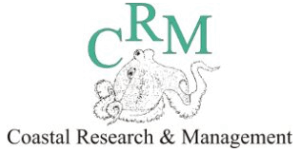Aquaculture Research
Aquaculture is one of the fastest growing branches of agriculture in the world and a critical factor in food security for future generations.
Especially in marine aquaculture or mariculture, mankind is still in the first phase of development and many questions are yet to be answered.
Therefore, CRM conducts research along the entire marine aquaculture process chain:
- Domestication and cultivation of new species
Only a very small fraction of the commercially interesting marine algae, fish and shellfish species are already cultivated. Therefore, CRM has conducted many experimental studies on the cultivation of sugar kelp (Saccharina latissima), bladderwrack (Fucus vesiculosus), sea string (Chorda filum), blue mussel (Mytilus edulis), cockle (Cerastoderma edule) and mullet (Chelon labrosus), among others.
- Environmental impact of marine aquaculture facilities
Aquaculture facilities have a variety of negative environmental impacts, but also some positive ones, depending on the trophic level of the cultivated species. CRM’s studies in this context have included carbon and nitrogen fluxes under fish and shellfish farms and the impact of aquaculture facilities on benthic biodiversity. Another research focus is replacing high trophic species with low trophic species. We are also testing the use of constructed wetlands with salt-tolerant plants for wastewater treatment of saltwater aquaculture farms.
- Valorization of waste materials from aquaculture
Aquaculture and subsequent processing generate various waste materials that are available as raw materials for subsequent uses, e.g. mussel shells, fish excrement and algae pomace. Valorization of aquaculture waste materials in the sense of upcycling and circular economy are a further field of research at CRM with a special focus on plastic alternatives.
Contact
Dr. Peter Krost
peter.krost@crm-online.de

